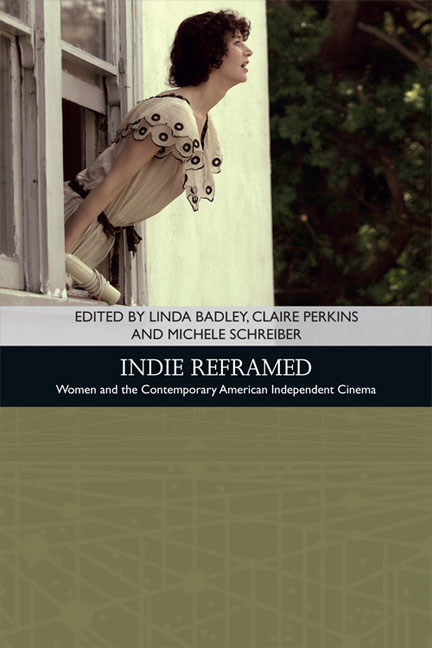17 - The Director as Facilitator: Collaboration, Cooperation and the Gender Politics of the Set
Published online by Cambridge University Press: 10 November 2020
Summary
‘One of the things I wanted to explore was: could I keep the intimate feeling of my tiny, family-style film sets where everybody is really excited to be there and on the same page, and it's a really positive experience for everybody?’ (Rochlin 2013: 2). The indie director Lynn Shelton's concerns about how her low-budget filmmaking style would translate into her work on an episode of Mad Men speaks to a central structural issue surrounding the ‘difference’ of female indie filmmakers and the radically hierarchical workplace practices that still govern both mainstream and indie movie production, practices that define the director as the central voice of authority on the set. In this essay I will argue that it is these practices, understood in their gendered and ideological context, that contribute to the seemingly intractable gender imbalance of who gets to direct movies.
While the loose matrix of production practices, aesthetic conventions, and cultural signifiers that define ‘indie’ moviemaking has been relatively more open to women directors than mainstream Hollywood production, this difference results as much from the dismally low bar set by the major studios as from anything even closely approaching gender equality in the indie film world. Drawing from an extended interview with Shelton on her own collaborative approach to moviemaking as well as the examples of other indie directors who challenge the dominant dictatorial and antagonistic models of set management, I argue that questioning the gendered assumptions informing the traditionally masculine signifier of the auteur can help us reframe the binary of individualist versus collectivist as models of the production process. Instead, the more dialectical idea of the auteur/director as collaborator and facilitator provides a strategy of feminist critique that opens up the connections between the maintenance of gender inequality and top-down (and often abusive) production practices that impede both the creative potential and economic efficiency of the traditional movie set.
CELLULOID CEILING: THEORY AND PRACTICE
Although the issues of the celluloid ceiling and the glaring gender imbalance in the director's chair are a focus of scrutiny within both the movie industry and academic cinema studies, this scrutiny takes different forms within each. Most entertainment industry and media discussion of the barriers that continue to exclude women from film and television direction, for example, tend to concentrate on the need to change individual attitudes among production executives.
- Type
- Chapter
- Information
- Indie ReframedWomen's Filmmaking and Contemporary American Independent Cinema, pp. 288 - 303Publisher: Edinburgh University PressPrint publication year: 2017



